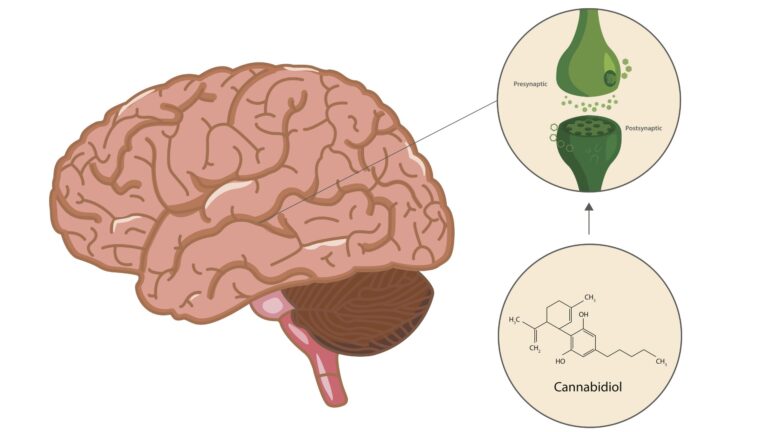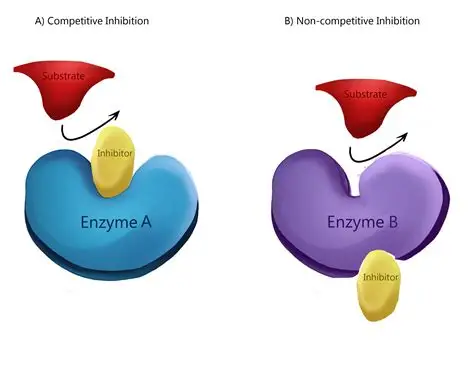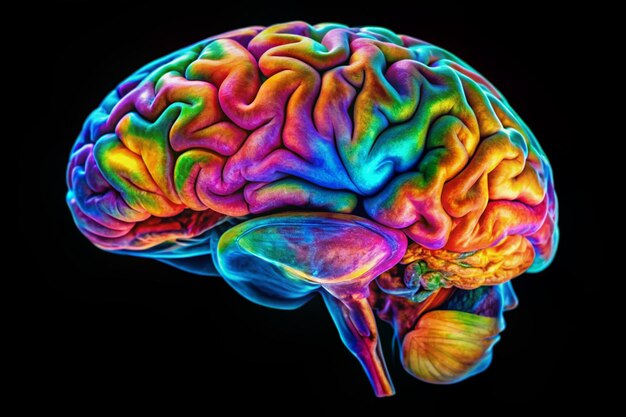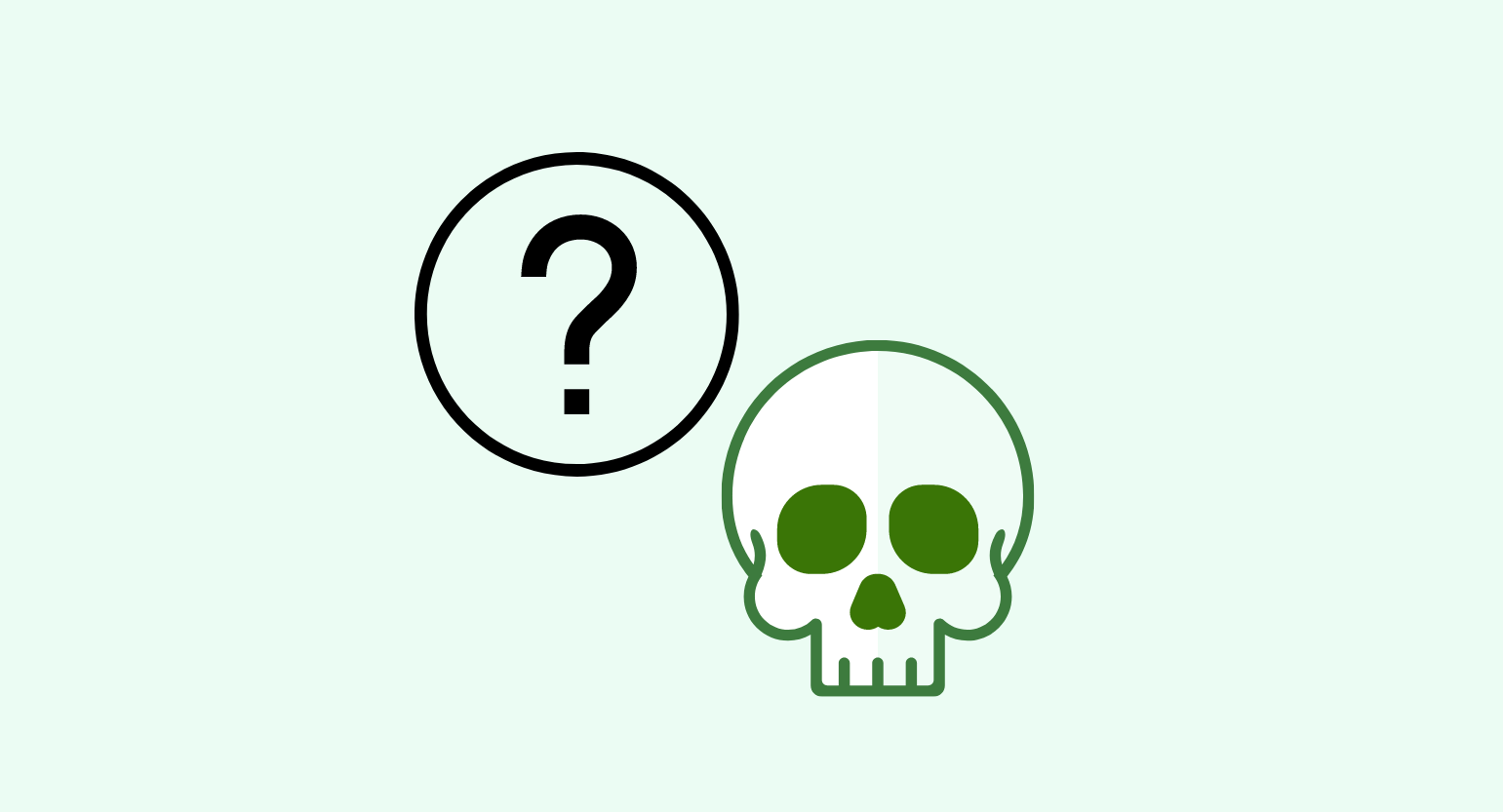
CBD and the Brain: Uncovering its Role, Mechanisms and Long-Term Effects
Introduction
Cannabidiol (CBD) has become a household name, lauded for its potential to alleviate conditions such as anxiety, chronic pain and epilepsy. Extracted from the cannabis plant, cannabidiol is a non-psychoactive cannabinoid, meaning it does not produce the heady “high” associated with tetrahydrocannabinol (THC), the main psychoactive component of marijuana. This distinction has sparked a great deal of interest in how CBD interacts with the brain, particularly its short- and long-term effects on brain health. With CBD products flooding the market, understanding its effects on the brain is critical for informed use.
This article explores the science behind CBD’s effects on the brain, provides insight into the role of CBD in the brain, and examines the long-term effects of CBD on the brain. By synthesizing insights from the latest research, we aim to provide a comprehensive, accessible overview of CBD’s role in brain function, its therapeutic potential, and the uncertainties that remain.

How CBD Works in the Brain
CBD works through the body’s endocannabinoid system (ECS), a complex network of receptors (CB1 and CB2), enzymes, and endocannabinoids (naturally-occurring cannabinoids such as anandamide.) The ECS regulates a variety of physiological processes, including mood, appetite, pain, and immune function. Unlike THC, which binds directly to CB1 receptors in the brain, CBD’s interactions are more indirect and multifaceted, which accounts for its unique effects.
Key Mechanisms
- Receptor Modulation: CBD does not bind strongly to CB1 or CB2 receptors, but can act as a negative allosteric modulator of CB1, altering its activity without directly activating CB1 (Laprairie et al., 2015). It also interacts with serotonin receptors (5-HT1A), which are critical for mood regulation, and vanilloid receptors (TRPV1), which are involved in nociception. In addition, CBD is an antagonist of the GPR55 receptor, which reduces inflammation.
- Enzyme Inhibition: CBD inhibits fatty acid amide hydrolase (FAAH), an enzyme that breaks down androstanamide (AEA), a key endogenous cannabinoid. By increasing levels of AEA, CBD indirectly enhances ECS activity and promotes homeostasis of brain function.
- Ion Channels and Neuroplasticity: CBD affects ion channels such as voltage-gated sodium and potassium channels that regulate neuronal excitability. It also modulates synaptic plasticity in brain regions such as the amygdala, hippocampus, and hypothalamus, which are involved in emotional processing, memory, and stress responses.
- Other Pathways: CBD targets mitochondria to regulate intracellular calcium levels, thereby affecting neuronal health. It also enhances brain-derived neurotrophic factor (BDNF) signaling, promotes synaptogenesis, and may produce antidepressant-like effects.


These mechanisms explain why CBD can affect brain function without causing toxicity, making it a promising candidate for the treatment of disorders such as anxiety, epilepsy and psychosis. However, the complexity of these interactions highlights the need for further research to fully understand how CBD works in the brain.
Short-Term Effects on the Brain
Neuroimaging studies have provided valuable insights into the acute effects of CBD on brain activity and connectivity, demonstrating that CBD has the potential to modulate brain function in both healthy individuals and those with mental or neurological disorders.
Key Findings
- Enhanced Connectivity: One study found that a single oral dose of 600 mg of CBD enhanced resting-state connections in the striatum anterior, which are involved in executive functions such as decision-making and impulse control. This suggests that CBD can enhance communication between brain regions that are critical for cognitive control.
- Emotion Regulation: Studies have shown that CBD reduces activity in the amygdala and anterior parahippocampal gyrus during times of intense fear, thereby reducing anxiety and stress responses. This effect is particularly relevant to disorders such as anxiety and post-traumatic stress disorder (PTSD).
- Cerebral Blood Flow: Studies have shown that 600 mg of CBD can increase cerebral blood flow in the hippocampus, a key area for memory, although no immediate memory improvement was observed.
- Cognitive Task Performance: CBD modulates brain activity in a variety of cognitive tasks, including emotion processing (frontotemporal areas), verbal memory (frontal striatal areas), response inhibition (frontal-limbic-striatal areas), and auditory/visual processing (temporal-occipital areas). CBD showed moderate levels of brain activity in these tasks in people at clinical risk for psychosis or in patients with established psychosis compared to placebo and healthy controls.
- Psychiatric Disorders: CBD modulates resting limbic activity in patients with anxiety disorders and alters metabolite levels in patients with autism spectrum disorders, with potential therapeutic uses.

These findings highlight the ability of CBD to affect the brain in the short term, particularly in regulating mood and cognitive processes. Its effects on brain connectivity and activity may underpin its potential to treat conditions such as epilepsy, where the FDA-approved CBD product Epidiolex has shown efficacy in reducing seizures (Healthline, 2023).
Long-Term Effects on the Brain
While the short-term effects of CBD are relatively well documented, the long-term effects of CBD on the brain are still poorly understood due to a lack of long-term human studies. Existing research comes primarily from preclinical studies and limited human trials that show potential benefits and risks.
Potential Benefits
- Neuroprotection: In neurodegenerative diseases such as Alzheimer’s disease and multiple sclerosis, CBD is expected to protect neurons from damage. In Alzheimer’s transgenic mice, chronic administration of 20 mg/kg/day of CBD for up to 8 months prevented social recognition memory deficits.The anti-inflammatory and antioxidant properties of CBD are thought to contribute to these neuroprotective effects.
- Cognitive Enhancement: In patients with schizophrenia, long-term administration of CBD improves sustained attention, unlike acute medication. This suggests that certain populations may require long-term use to achieve cognitive benefits.
- Therapeutic Potential: CBD’s ability to modulate brain activity and connectivity over time has important implications for the treatment of chronic diseases. For example, administration of CBD to neonatal rats following hypoxia-ischemia reduced long-term brain damage and restored neurobehavioral function.
Potential Risks
- Developmental Effects: The Centers for Disease Control and Prevention (CDC) warns that marijuana use (including CBD) during adolescence (before age 18) may interfere with brain development, potentially leading to long-term cognitive deficits in attention, memory, and learning ability. These effects can be long-term and even permanent, but are more pronounced with THC-rich products.The specific risks of CBD itself on brain development are still under investigation.
- High Dose Toxicity: In vitro studies have shown that high doses of CBD may be neurotoxic, resulting in neuronal death. For example, at a CBD dose of 30 μm, 10% neuronal death was observed in neuronal/gastrocyte co-cultures and 50% neuronal death was observed in neuronal/neuronal co-cultures. However, no neurotoxicity was observed in neuron/astrocyte co-cultures at a lower dose (15 μm). Astrocytes are supportive brain cells that attenuate the neurotoxicity of CBD by modulating calcium mechanisms and reducing high intracellular calcium concentrations associated with cell death. In vivo, the relevance of these findings is unclear because typical therapeutic doses are much lower.
- Uncertainties and Confounding Factors: Long-term effects on the brain may be influenced by genetics, family environment, or other unknown factors. Long-term administration of CBD in mice had no adverse effects on memory, motor performance, or anxiety, but human studies are limited and more placebo-controlled trials are needed.

Ongoing Research
The National Institute on Drug Abuse (NIDA) is conducting the Adolescent Brain Cognitive Development (ABCD) study to better understand how marijuana, including CBD, affects brain development in adolescents. This large-scale, long-term project could provide important insights into the long-term effects of CBD on the brain, especially in younger populations.
Summary Table of Long-Term Effects
| Aspect | Potential Benefits | Potential Risks |
|---|---|---|
| Neuroprotection | Prevents memory deficits in Alzheimer’s models; reduces inflammation and oxidative stress. | High doses may cause neuron death, though mitigated by astrocytes. |
| Cognitive Function | Improves sustained attention in schizophrenia with long-term use. | Possible cognitive impairments in adolescents, especially before age 18. |
| Therapeutic Potential | Reduces brain injury and restores function in preclinical models. | Limited human data; risks may depend on dose, age, and other factors. |
Conclusion
CBD’s interaction with the brain is complex and raises questions about its long-term safety while offering potential therapeutic benefits. Short-term studies have shown that CBD is able to modulate brain activity, enhance connectivity, and regulate mood and cognitive processes, and therefore holds promise for treating disorders such as anxiety, epilepsy, and psychosis. Long-term studies, while limited, have also demonstrated neuroprotective and cognitive benefits, particularly in neurodegenerative disorders, but have also highlighted potential risks, particularly for the developing brain and at high doses.
As CBD grows in popularity, it is important for consumers and healthcare providers to stay abreast of the latest research findings. While CBD is generally recognized as safe with no risk of addiction, its long-term effects, especially on children and adolescents, remain uncertain. Consultation with healthcare professionals is critical, especially given the potential for drug interactions. Future research, such as the ABCD study, is critical to clarify the effects of CBD on brain health and ensure its safe and effective use.


